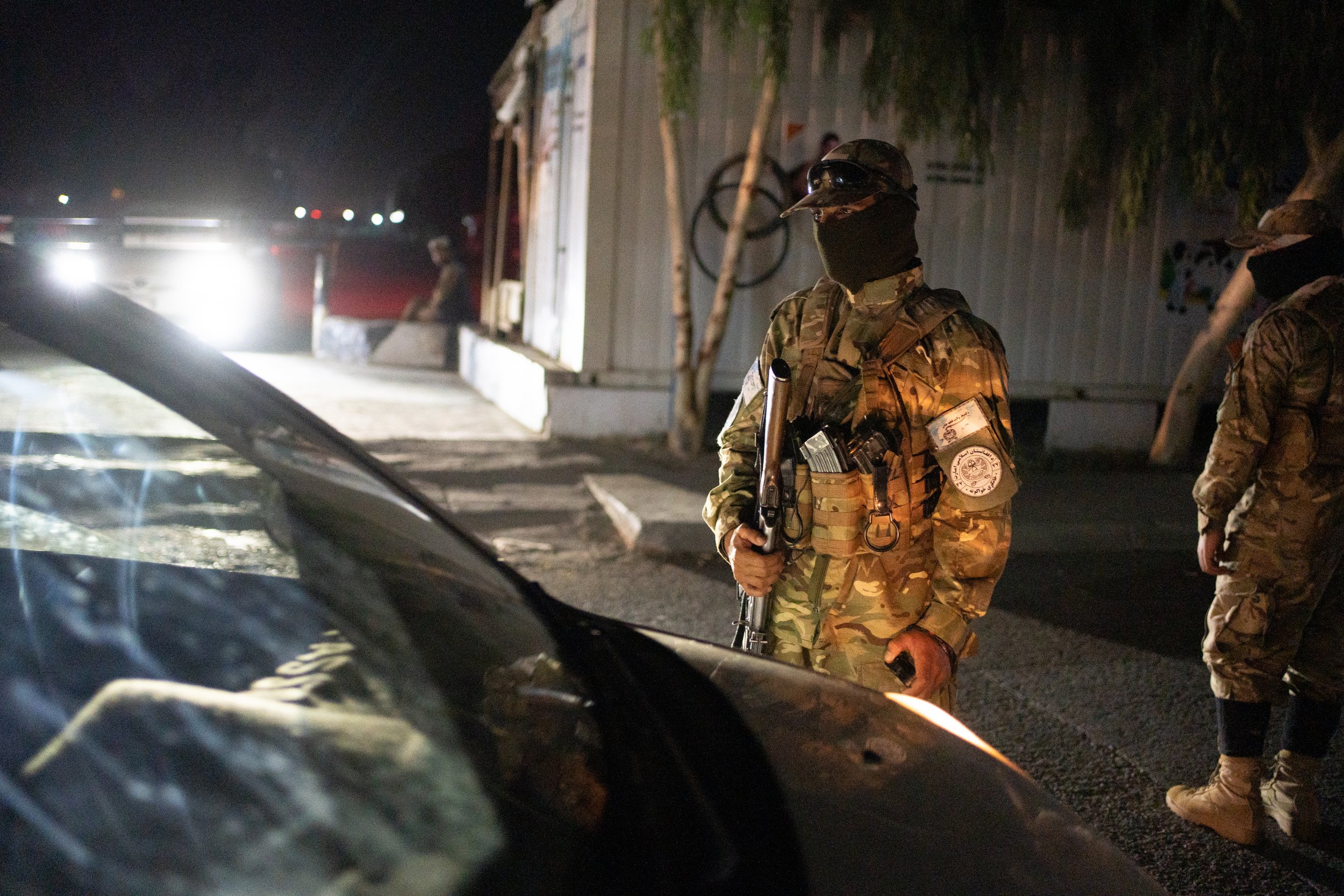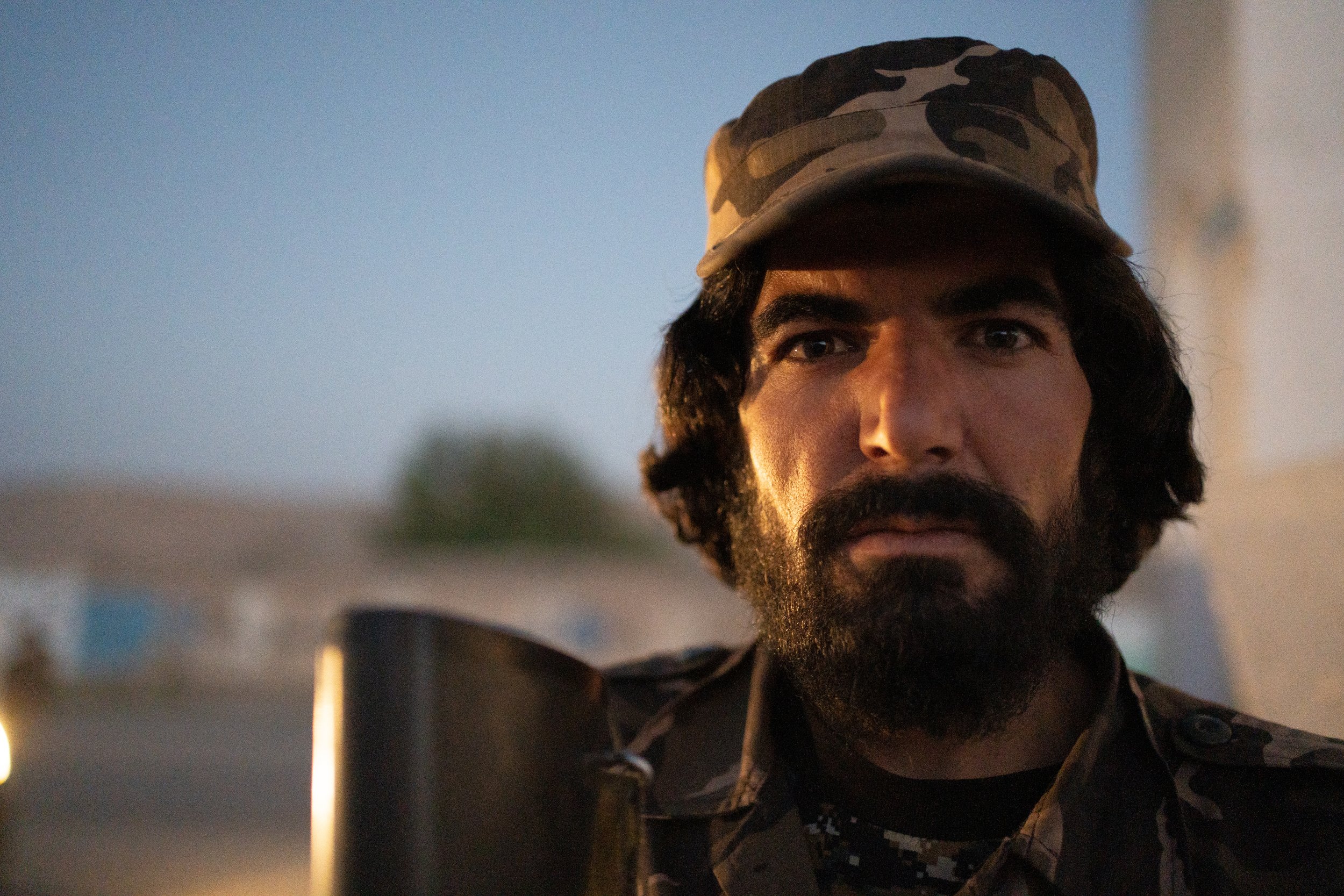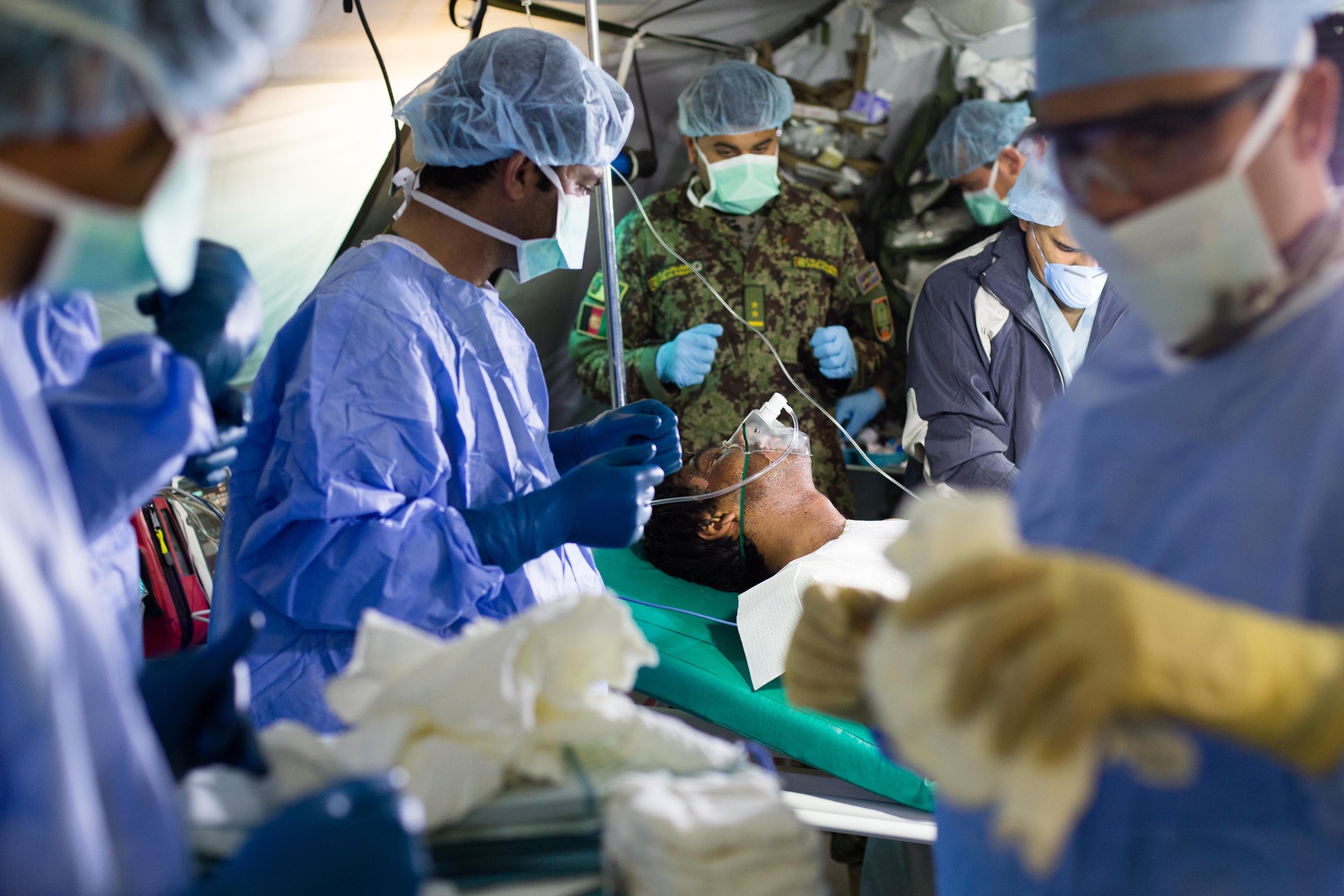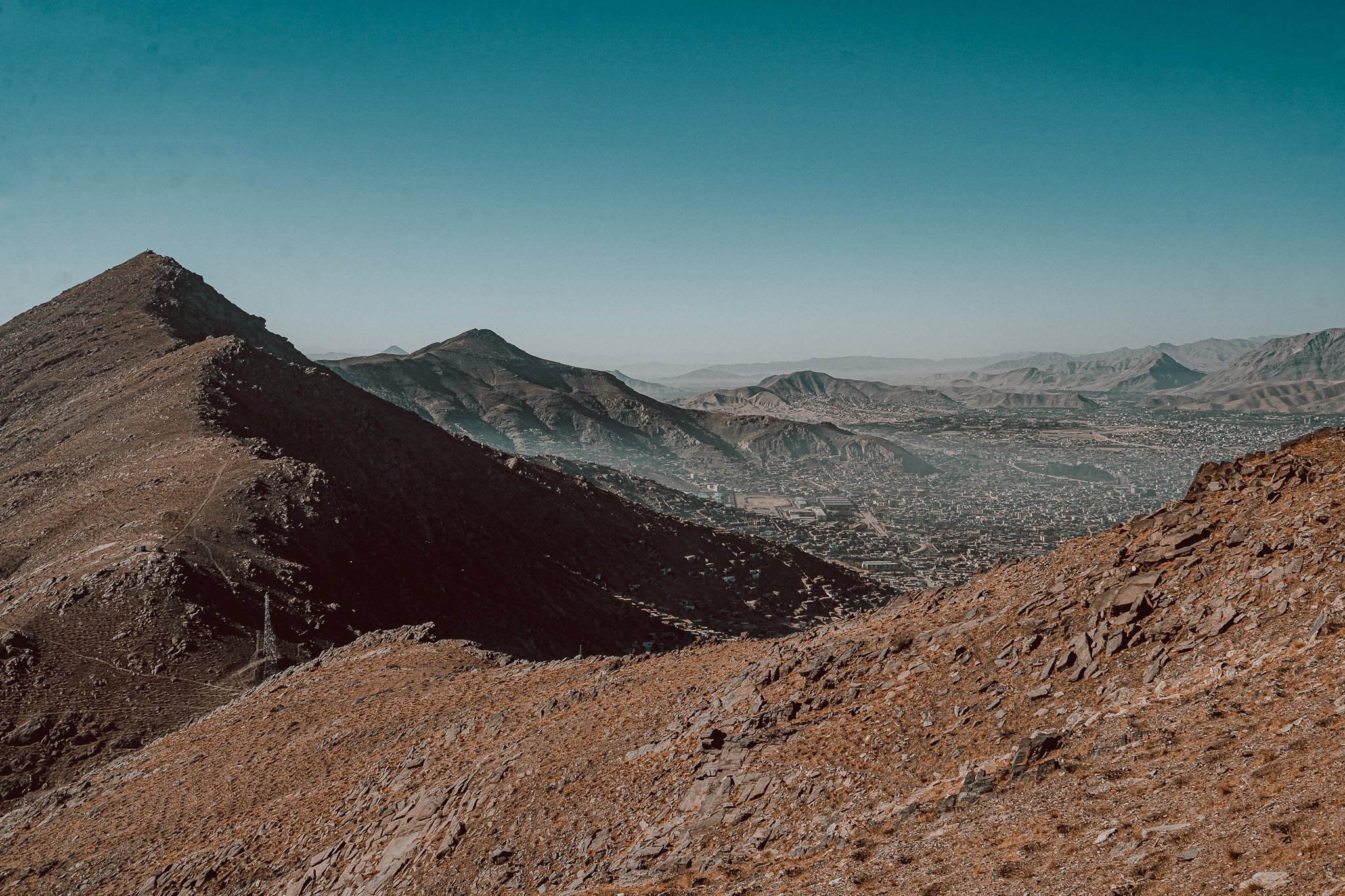
Afghanistan Risks.

Whenever I talk to anyone about travelling in Afghanistan, their first question is always the same. Is it safe?
There is no hiding from the fact that that travelling in Afghanistan is fundamentally more risky than travelling to the Costa Del Sol. By coming on a journey with us, you accept an element of risk in return for travelling in a country which is as enchanting, beautiful and fascinating as it is troubled. If Afghanistan wasn’t a tough place to travel, you’d probably have just booked yourself a flight and packed your backpack.
From our point of view, we consider Afghanistan a reasonable place to travel or we wouldn’t be offering the country as a destination. We are constantly reassessing the situation and would never hesitate to cancel or curtail a trip if that assessment changed.
It might sound strange but very generally, the security situation in Afghanistan since the fall of the internationally recognized government in August 2021 has improved considerably. Simply put, the country is no longer at war. The atmosphere on the streets of major cities is calm, and fighting or attacks are comparatively rare.
Significantly, low level corruption and intimidation at checkpoints has largely evaporated. This makes it considerably more difficult for criminals or terrorists to move around easily by paying cheap bribes. The Taliban are a heavy presence in all cities and are found dotted around at dozens of checkpoints on the main roads, which were formerly held by national army or police.
Most Afghans will concede that even if life has deteriorated for them socially or economically, the general security situation has considerably improved since the return of the Taliban.
For an updated Winter 2023/24 Security Update please look here
For our response to the May 2024 Bamyan attack on Spanish tourists please look here.

“This Taliban member insisted we photographed him at a checkpoint at dusk in September. It's a surreal moment approaching checkpoints like these in Afghanistan, never mind being encouraged to photograph them”
Spin Boldak, Nov 2022

Wrong Place, Wrong Time…
The second biggest risk to you in Afghanistan is what we would refer to as the risk of being in the wrong place at the wrong time. This means that as a group we are caught up in an explosion or in fighting which isn’t targeted towards us.
For example the Islamic State of Khorasan Province (ISKP), the Islamic State’s (ISIS) affiliate in Afghanistan, has repeatedly attacked Hazaras and other religious minorities at their mosques, schools, and workplaces. Painfully, girls’ schools and young women trying to gain an education have been frequent targets of these attacks. The targeted nature of these attacks makes it easy for us to mitigate this risk, by avoiding places where we might find ourselves caught up in these sadly predictable incidents.
For example at the moment we would consider visiting the commemoration of Ashura as unacceptable high risk, but feel that visits to a bazaar or to other publics places to be relatively low risk. We would never consider taking our guests to places with active resistance from groups like the National Resistance Front of Afghanistan or any form of localized fighting. That means that, for now, places like the iconic Panjshir valley are no-go areas.
Above: A typical day of driving with co-conspirator Martin J in Summer 2016.
Road Traffic Accidents…
The biggest risk to you in Afghanistan may surprise you. It’s the risk of being involved in serious a car accident in a country where medical facilities are basic, particularly in rural areas where levels of urgent and emergency care are almost non-existent.
The condition of road surfaces in Afghanistan has significantly improved in the last 20 years, whilst driving standards, checks on vehicles and general attitudes towards safety haven’t. This means people can drive faster, and as a result it’s common to see horrific car and truck accidents on the country’s main roads, particularly involving motorbikes or children tending livestock.
We mitigate this major risk by having a zero-tolerance policy to risk regarding our driving, drivers and vehicles. We also operate modern, well-maintained four-wheel drive vehicles, with airbags and seatbelts. If the worse should happen, then at least one of your guides will be a minimum of a FREC3 trained first responder and other our drivers and other staff will have been briefed on what to do in the event of an incident. We will be carrying a comprehensive expedition first aid kid and at least one of our vehicles will be carrying a defibrillator.
Safarāt has a comprehensive list of the best medical facilities in Afghanistan and an assessment of their capability. You can read about how we plan for the worst here.
The aftermath of an attack. Casualties queue to get access to the Italian Emergency hospital in Kabul.
Attacks On Foreigners?
There’s no getting away from the fact that there are groups active in Afghanistan who might like to hurt or attack foreign groups of tourists. The recent attack on the Chinese owned Longan hotel in Kabul proves that this remains a danger to us as a group.
The risk to foreigners can be broken into two separate threats both of which we actively engage against and mitigate.
Premeditated Attacks against us by groups such as ISKP are a risk, but are an incredibly low one. We prevent ourselves becoming a high profile target of such a group through a whole host of well practised strategies which can be summarised as ‘keeping a low profile’. We limit patterns of behaviour, don’t make our plans public and would encourage you not to live blog your trip to social media to avoid making the group an easily findable target. We’ve also carefully evaluated which hotels we use, how far in advance we let them know we are arriving and who owns the facilities we are patronising. (We had already identified the Longan Hotel as a place which was likely to be attacked!)
Secondly, we’ve thought long and hard about the risk of opportunist attacks against our group. These are the kinds of incident where a person or group sees one of our vehicles or a group of our guests and decides to confront or attack them at the spur of the moment. These kind of incidents are harder for us to predict or prevent.
In some parts of the country there remains a deep suspicion of foreigners – this has been reinforced by decades of war, and the feeling that outside interference or attention tends to bring trouble to communities. Other incidents like the recent burning of the Quran in Denmark, can cause significant friction and resentment towards citizens of any western country – so we are careful to monitor local news and social media to make sure that we don’t need to adjust our plans.
Despite this the country is generally an incredibly welcoming, hospitable country, particularly in the south where the culture of Pashtunwali is dominant. This fiercely entrenched set of values extends to the protection of guests as a key belief and one which is strictly adhered to.
This is one of the many reasons that Safarāt always involves the local community in our trips and make sure that we are being welcomed as guests, and are never imposing ourselves as outsiders. We have made it very clear to our partners and hosts that our visits should be a valuable exchange and never exploitative or forced.

“An Afghan National Army soldier is treated for blast burns in Helmand in 2015.
The departure of foreign forces from Afghanistan has also meant the departure of much of the country’s critical care infrastructure which could be relied upon in the event of an emergency.”
Camp Shorabak, June 2015

The Taliban and Politics
Internationally recognised or otherwise, the Taliban control Afghanistan and we operate in the country under their permission. Our Afghan business partner has a license that they operate under, which is issued to them by the Ministry of Tourism in Kabul.
This means that all our travel is with official permission and we work toward securing the necessary permits that you need to travel through the country before you arrive. Unlike some operators, we have a constant presence on the ground in Afghanistan which means that nothing is ever lost in communication between us and the government, and that our intentions are never misunderstood.
The Taliban currently see tourism as a way to attract much needed foreign currency into the country, without the strings that come attached with investment from foreign governments or NGO’s.
In certain sensitive areas, we may be required to take an armed Taliban escort. We’d always prefer not to travel with anyone with weapons, but the men tasked to accompany us will typically be from the local area and know the local people. This is a positive as it means we aren’t treated like outsiders. Your Taliban guard will typically be very keen to show off themselves and their community!
Street Crime, Kidnapping and the Economy….
Generally speaking street crime in Afghanistan is considerably less than you might experience in parts of London. Aggressive begging has become a significant problem since the fall of the internationally recognized government in 2021, and we would recommend not giving money to beggars in the street.
Although the country has significantly stabilized since 2021, the condition of the economy has driven some levels of violent crime up. In Herat in 2023 for example there was a considerable uptick in carjacking, banditry and kidnapping of wealthy Afghan business people and their families this year. In some provinces criminals have set up fake checkpoints, posing as members of the Taliban and committing robberies. In response to this, the authorities in Kabul have mandated that its fighters wear uniforms, although this has been widely ignored.
We will be avoiding travelling at night, on unknown routes or taking you to places that we or our friends haven’t travelled before to prevent the risk of being targeted by criminals.
A reminder of a dark past…
Since 1989, about 46,868 Afghan civilians have been recorded to have been killed or injured by landmines and explosive remnants of war (ERW). Before August 2021, the average number of casualties was about 160 people per month.
The risk of us encountering ERW grows as we try and explore more remote communities and places that people don’t regularly go. This may include more remote historic sites.
We remain vigilant and aware of the risk of ERW, IED’s and landmines, making use of local knowledge, and only visiting well trodden places. We consider risk of our groups encountering these threats as very low.
And Finally….
You must understand that The Foreign, Commonwealth & Development Office (FCDO) advises against all travel to Afghanistan. There are currently no British consular officials in Afghanistan and any support from other missions including the European Union who have a presence in Kabul will be extremely limited, even for EU citizens.






